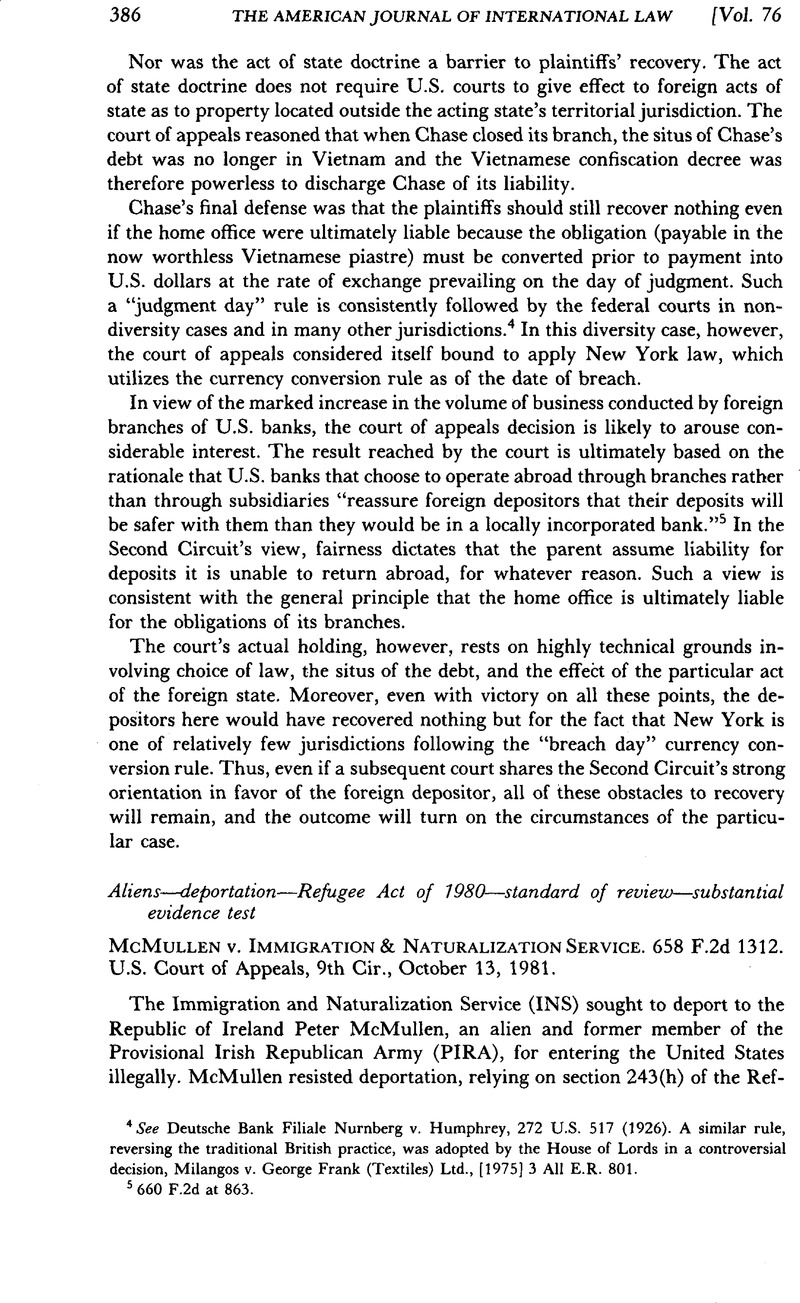No CrossRef data available.
Article contents
McMullen v. Immigration & Naturalization Service. 658 F.2d 1312
Published online by Cambridge University Press: 27 February 2017
Abstract

- Type
- Judicial Decisions
- Information
- Copyright
- Copyright © American Society of International Law 1982
References
1 In re Extradition of McMullen, No. 3–78–1099 MG (CD. Cal. 1979), 74 AJIL 434 (1980). The Government conceded that persecution within the meaning of section 243(h) includes persecution by nongovernmental groups, such as the PIRA, where it is shown that the government of the proposed country of deportation is unwilling or unable to control such groups.
2 The court noted that because the relevant statute was significantly amended in 1980, this question is one of first impression.
3 See Immigration and Nationality Act, 7 U.S.C. §1253(h), 66 Stat. 212 (1952).
4 658 F.2d 1312, 1316.
5 Ibid. In reaching this decision, the court also relied on general standards of administrative law; it noted that “[a]gency findings arising from public, record-producing proceedings are normally subject to the substantial-evidence standard of review.” Ibid. See Citizens to Preserve Overton Park, Inc. v. Volpe, 401 U.S. 402, 414 (1971).
6 658 F.2d at 1319. Cf. United Nations High Commissioner for Refugees Handbook on Procedure and Criteria for Determining Refugee Status ¶196, at 47 (1979) (noting that refugees fleeing political persecution are often limited in the evidence they can submit to support their claims).
7 S. 1639, 97th Cong., 1st Sess. (1981).




